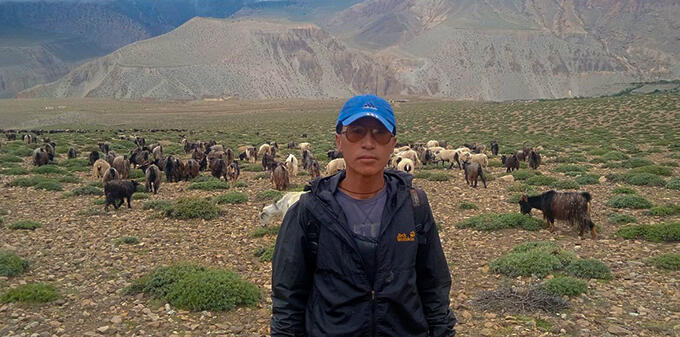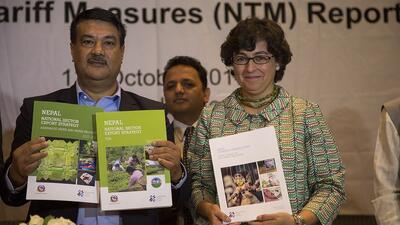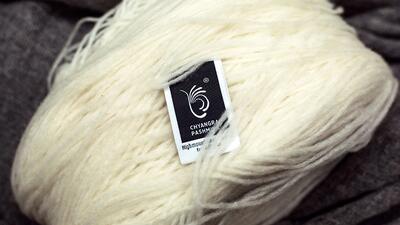
Story: Policymakers in Nepal hear the voice of Chyangra pashmina farmers
Karan Gurung Tangbe lives in Upper Mustang, one of the remotest regions of Nepal known for its mountain goats (called chyangra in Nepali) that produce pashmina fiber.
The fiber from the chyangra undergoes various forms of processing before it can be woven into high-value products such as pashmina shawls, sweaters, and other clothing. Chyangra Pashmina (this is how it has been branded) is known around the world for its softness and warmth.
“The goats we rear grow a lot of fiber in winter, which we harvest and sell in the market,” says Tangbe, who divides his time between advocating for the welfare of chyangra herders and looking after his goats.
Pashmina has been identified as one of the country’s priority products to bridge Nepal’s widening trade deficit with the rest of the world. However, several challenges in various segments of the value chain have limited the sector’s growth in Nepal.
An export strategy set to change the industry
Therefore, the International Trade Centre under the EU-Nepal Trade and Investment Programme is preparing a comprehensive sector export strategy to address some of the challenges. The first draft is expected early 2022
Over the next five years, the strategy's vision of "sustainable development of Chyangra Pashmina, bringing authentic Himalayan cashmere from Nepal to inspire the world", will focus on developing the pashmina fiber production and backward linkages, increasing sustainable productive capacities of manufacturers and product authenticity, as well as strengthening institutional and policy support to promote and export Chyangra Pashmina products.
“I have taken part in almost all discussions related to the export strategy,” says Tangbe. “I am glad that most of our concerns on backward linkages have been addressed in the draft.”
Many suggestions stemming from the consultations with the farmers from Upper-Mustang, have been integrated into a five-year plan of action, validated by Nepal’s Ministry of Industry, Commerce, and Supplies.
The pashmina producer adds, “We hope that the farmers get on-the-spot access to services such as veterinary and insurance. Farmers don’t always have access to these services as Mustang lies in a remote area.”
Farmers’ needs are being heard
During the workshops and seminars on the strategy, Tangbe and his fellow farmers have urged the government to provide them with financial assistance to buy more goats for a bigger herd.
Not only that.
“We also suggest that the government help us build temporary sheds for goats near pastureland. This has been difficult as the sheds sometimes lie inside protected areas,” Tangbe added.
“Overall, I feel that farmers back home in Mustang will be happy to hear about the plans laid out in the strategy. It is now up to all stakeholders to implement it effectively, so that the lives of us farmers are better, and the economy grows.”
About the project
The European-Union funded EU-Nepal Trade and Investment Programme (TIP), implemented by the International Trade Centre, stands for the country’s inclusive growth through regional integration, trade intelligence and participation in global value chains, in the coffee and pashmina







